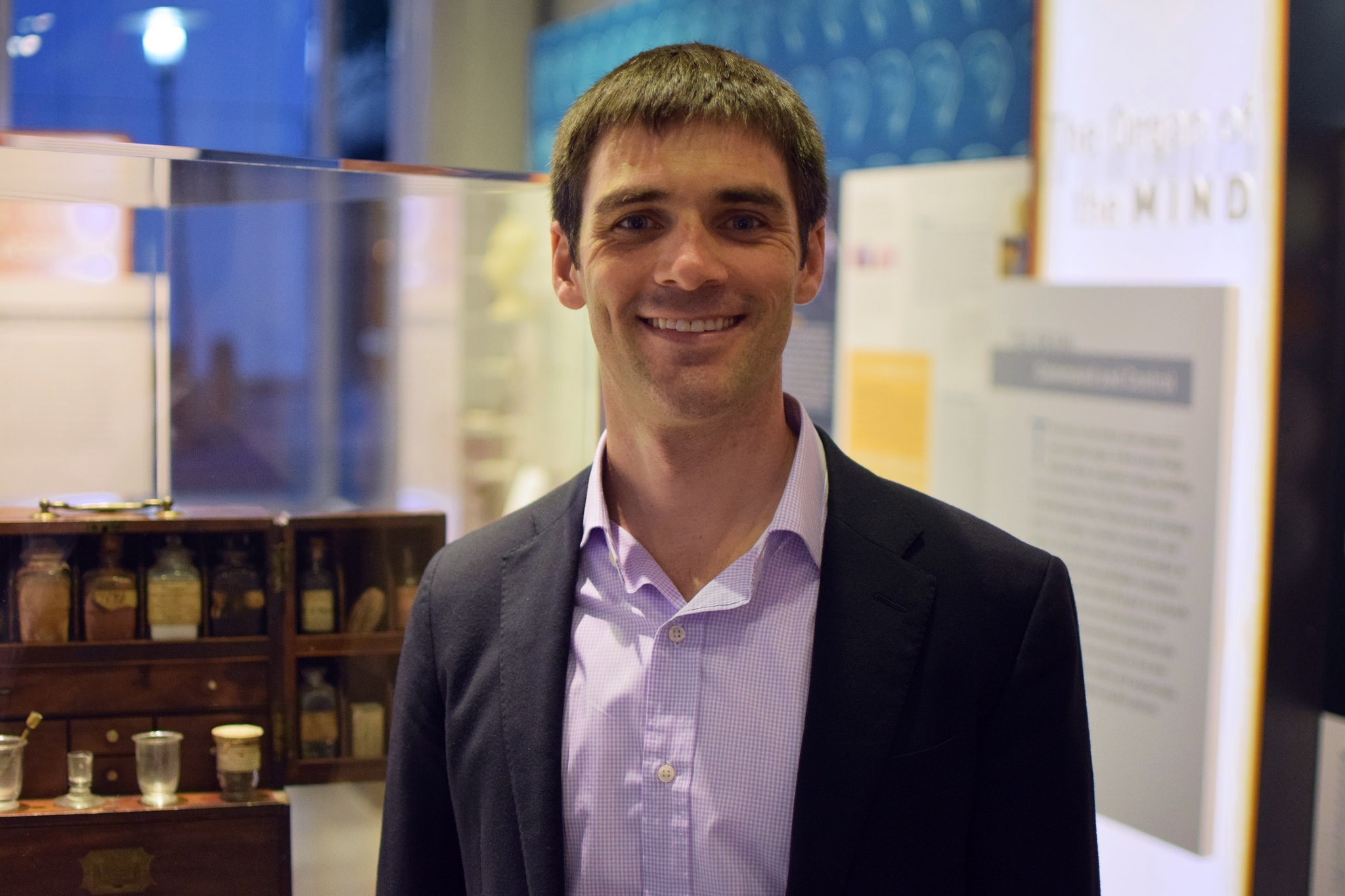
Chandler Robinson's MBA at Cambridge helped him start a biotech company to develop a potentially life-saving drug. That drug has is now in Phase III trials and has been acquired by a major company.
Just months after completing his MBA at the University of Cambridge Chandler Robinson started a biotech company and sold a potentially life-saving drug that he worked on as an undergraduate, which is now being fast tracked by the US and Europe after a successful Phase Two trial. Earlier this year the company he sold it to, and whose board he was on for two years, was acquired by Alexion Pharmaceuticals. Alexion has commenced the last stage of development to bring the drug to market.
Chandler [2009] completed his MBA in 2010 and in the two-year period after was able to develop, manufacture and sell the potentially therapeutic drug known generically as choline tetrathiomolybdate, which has characteristics which make it attractive for use in the treatment of Wilson’s Disease.
Wilson's Disease is a rare inherited condition characterised by the body’s inability to metabolise copper. If left untreated, the disease leads to liver and brain damage and results in death at an early age. Chandler was previously on the board of Wilson Therapeutics, the Swedish company that bought the drug. At the time he was also juggling his business interests with his medical training and his work for a non-profit organisation which he founded at Northwestern University to promote undergraduate research.
Chandler, who is from Columbus, Ohio, is the youngest of five children, born into a family that values education. He admits that his career path has in no way been planned and says it is the result of being open to following his interests and being willing to change course. Chandler was initially a maths major at Northwestern University. He says it was only when he met chemistry professor Tom O’Halloran that he added chemistry as a second major. He graduated summa cum laude and won several awards in chemistry and maths.
But it was Chandler’s experience in doing research with Professor O'Halloran while an undergraduate that was to have a huge impact on his future career. Even though he was an undergraduate, he was placed in charge of the crystallography for his project. Because the lab he was in was not a crystallography lab, he had to train himself in that area. He was able to form a protein crystal of TM [tetrathiomolybdate] bound to a copper chaperone and his group became the first to show how tetrathiomolybdate binds copper and copper proteins – a theory which had only been mooted before. He and his group’s results were published in Science.
Undergraduate research
As an undergraduate, Chandler also founded and raised funds for the American Undergraduate Research Society, a non-profit, which is now in its fourteenth year. It supports undergraduate research by organising regional symposia and by providing research and travel grants. The symposia are sponsored in large part by private companies and participating universities and are held in professional settings such as hotels, museums and university-related buildings.
After Northwestern, Chandler headed to the London School of Economics on a Fulbright Scholarship where he received a master’s in Health Economics and Health Policy. He also accepted a part-time job at Bear Stearns investment bank to gain more experience in the business world. He didn’t neglect his studies, though, and won his programme’s prize for best masters dissertation. He was offered a full-time job at Bear Stearns after finishing his course, but turned it down to start medical school at Stanford.
While in medical school, Chandler again managed to do other work on the side. He was in charge of finance and fundraising at a Stanford-affiliated free healthcare clinic in a deprived area of San Jose for one year, and also volunteered at the clinic. Between first and second year, he also took a few months to work at Onyx Pharmaceuticals to gain biotech experience. He found it so interesting that he applied, in the middle of his second year of medical school, for a Gates Cambridge Scholarship to pursue an MBA.
By the time Chandler received his MBA degree in 2010, an opportunity arose for him and a group in Chicago to acquire the rights to the drug he had researched as an undergraduate. The group included his professor, Tom O’Halloran, and Andrew Mazar who was Chief Scientific Officer. The company the group formed was called Tactic Pharmaceuticals and Chandler was the CEO. By the middle of 2012, Tactic had applied for and received orphan drug status from the Food and Drug Administration for its use in the treatment of Wilson’s disease, trademarked the drug as Decuprate, completed a manufacturing campaign and partnered with Medical Need Europe AB, a company based in Sweden. The EU partnership enabled the company to make the drug available to patients within Europe.
Shortly after the EU partnership was forged, Chandler and Tactic sold the rest of their worldwide rights to Decuprate which is also known as WTX101. This meant Chandler could return to Stanford to complete his medical training. “Never in my wildest dreams did I think that I could do an MBA and become CEO of a company,” he says.
Since then Chandler has completed his medical training and co-founded another medical company, Monopar Therapeutics, an emerging biopharmaceutical company focused on developing drugs to improve clinical outcomes for cancer patients. He is now CEO of the company and is also currently on the board of Northwestern University's Chemistry of Life Processes Institute.
In April 2018, Alexion Pharmaceuticals acquired Wilson Therapeutics for $855m after WTX101 successfully completed a Phase II clinical trial.
*Picture credit: Alex Kong
Chandler Robinson
- Alumni
- United States
- 2009 MBA MBA
- St John's College
Dr. Robinson is co-founder and CEO of Monopar Therapeutics. In 2010, Dr. Robinson co-founded and was CEO of Tactic Pharmaceuticals. He helped lead Tactic through a successful sale of its lead compound. His passion is leveraging his interests in medicine, science, and finance to help bring new therapeutics to patients. The compound Dr. Robinson researched at Northwestern University as an undergraduate, and published on in Science, is currently in a Phase II clinical trial for Wilson Disease. Among his previous experiences, Dr. Robinson in 2008 worked at Onyx Pharmaceuticals in their Nexavar marketing division, from 2008-2009 as a co-manager of a healthcare clinic in San Jose CA, from 2004 to present as Founder and President of an undergraduate research focused non-profit, and from 2006 to 2007 at Bear Stearns investment bank. He was previously on the board of Wilson Therapeutics, and is currently on the board of Northwestern University's Chemistry of Life Processes Institute. Dr. Robinson graduated summa cum laude from Northwestern University, earned a master's degree in International Health Policy and Health Economics from the London School of Economics on a Fulbright Scholarship, an MBA from Cambridge University on a Gates Scholarship, and an MD from Stanford University.












